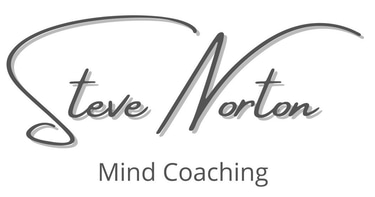Reclaiming Your Health: Strategies to Overcome Health Anxiety
ANXIETY
3/11/20254 min read


Health anxiety can feel like a relentless shadow that undermines your peace of mind and disrupts your daily life. When everyday sensations or minor symptoms spark catastrophic thoughts about serious illness, it can become overwhelming and all-consuming. However, by understanding the nature of health anxiety and implementing targeted strategies, you can reclaim control over your mental well-being and your health. Here are practical approaches to help you manage and eventually overcome health anxiety.
Understanding Health Anxiety
Health anxiety is more than just a fleeting worry about your physical well-being; it is a persistent state of fear that something is seriously wrong with your health—even when medical evaluations indicate otherwise. This condition often leads to excessive self-monitoring, repeated doctor visits, and constant reassurance seeking. At its core, health anxiety is fueled by misinterpretation of normal bodily sensations, leading to a cycle where fear generates more physical tension and, in turn, more anxiety.
Many individuals experiencing health anxiety also struggle with underlying issues such as stress, perfectionism, or a history of trauma. These factors can contribute to a heightened sensitivity toward bodily cues. Recognizing that your anxiety is a mental condition, rather than a reflection of actual physical illness, is a critical first step toward recovery.
Cognitive Strategies: Reshaping Your Thoughts
One of the most effective methods to combat health anxiety is through cognitive strategies, which involve reshaping the way you think about your body and health. Thought retraining techniques can help break the cycle of catastrophic thinking. Start by:
Identifying Distorted Thoughts: Notice when you begin to jump to conclusions about your health. For example, if a minor headache triggers the fear of a brain tumor, gently challenge that thought by asking, “What evidence do I have that this is a serious problem?” Recognize that the body often gives benign signals that do not indicate illness.
Reframing Your Perspective: Replace catastrophic thoughts with more balanced interpretations. Instead of thinking, “I must be seriously ill,” consider, “This headache is likely just a normal response to stress or dehydration.” Journaling these thoughts can help you track patterns and gradually shift your mindset.
Practicing Thought-Stopping Techniques: When you catch yourself spiraling into worry, use a mental cue to interrupt the pattern. For example, saying “Stop!” or visualizing a stop sign can create a pause that allows you to regain control over your thought process.
Mindfulness and Relaxation Techniques
Mindfulness practices offer powerful tools to detach from anxious thoughts. By learning to focus on the present moment, you can reduce the impact of intrusive worries about your health. Here are some techniques to consider:
Mindful Breathing: Spend a few minutes each day focusing solely on your breath. Notice the sensation of the air entering and leaving your body. This practice not only centers your thoughts but also reduces the physical symptoms of anxiety, such as rapid heart rate and muscle tension.
Body Scan Meditation: This involves mentally scanning your body from head to toe, acknowledging sensations without judgment. A body scan can help you differentiate between normal bodily sensations and the alarm bells of health anxiety, reducing the tendency to misinterpret these signals.
Progressive Muscle Relaxation: This technique involves tensing and then relaxing different muscle groups in your body. Progressive muscle relaxation can ease physical tension, which in turn reduces the intensity of anxious thoughts.
Lifestyle Adjustments: Nurturing Your Body and Mind
Healthy lifestyle choices play a crucial role in managing health anxiety. When your body is well cared for, you are less likely to misinterpret physical sensations as signs of serious illness. Consider incorporating the following into your routine:
Regular Exercise: Physical activity not only strengthens the body but also releases endorphins—natural mood lifters that help counteract anxiety. Even moderate exercise, like walking or yoga, can provide a sense of control over your body and improve overall mental health.
Balanced Diet: Nutrition impacts both physical and mental well-being. Eating a balanced diet rich in fruits, vegetables, lean proteins, and whole grains helps stabilize blood sugar and energy levels, reducing the likelihood of experiencing physical sensations that might be misinterpreted as symptoms of illness.
Adequate Sleep: Poor sleep can exacerbate anxiety and make it more difficult to think rationally about health concerns. Establish a consistent sleep routine to ensure your body and mind are well-rested. Avoid stimulants before bedtime and create a relaxing sleep environment.
Stress Management: Identify the sources of stress in your life and develop strategies to manage them. Whether it’s through hobbies, social connections, or professional counseling, addressing stress directly can diminish its impact on your health anxiety.
Seeking Professional Support
While self-help strategies are essential, sometimes health anxiety requires professional intervention. Cognitive Behavioral Therapy (CBT) is a well-established treatment for health anxiety, helping patients identify and modify irrational thought patterns. A therapist trained in CBT or other anxiety management techniques can provide personalized strategies and support.
For some, medication may also be beneficial, particularly if anxiety is interfering significantly with daily functioning. Consulting with a mental health professional can help determine whether a combination of therapy and medication is appropriate for your situation.
Building a Support Network
Reaching out to others who understand what you’re going through can be incredibly therapeutic. Consider joining a support group for individuals with health anxiety. Sharing experiences and coping strategies can provide reassurance that you’re not alone in your struggle. Family and friends can also be an important part of your support network; don’t hesitate to share your challenges with those you trust.
Final Thoughts
Overcoming health anxiety is a journey that requires patience, persistence, and a multifaceted approach. By understanding the nature of your anxiety, challenging distorted thoughts, practicing mindfulness, and making positive lifestyle changes, you can reclaim control over your health and well-being. Remember that setbacks may occur, but every step you take is progress toward a calmer, more confident life. Whether through self-help strategies, professional guidance, or the support of loved ones, your path to overcoming health anxiety is both attainable and empowering.
Taking control of your mental health isn’t just about managing anxiety—it’s about nurturing a healthier, more balanced life. Start implementing these strategies today and celebrate each small victory along your journey to reclaiming your health.
